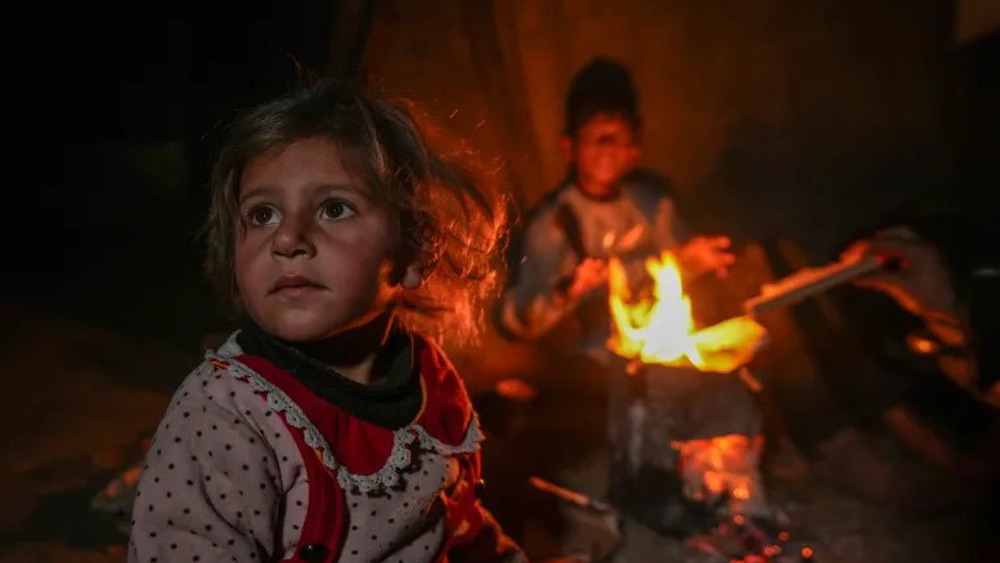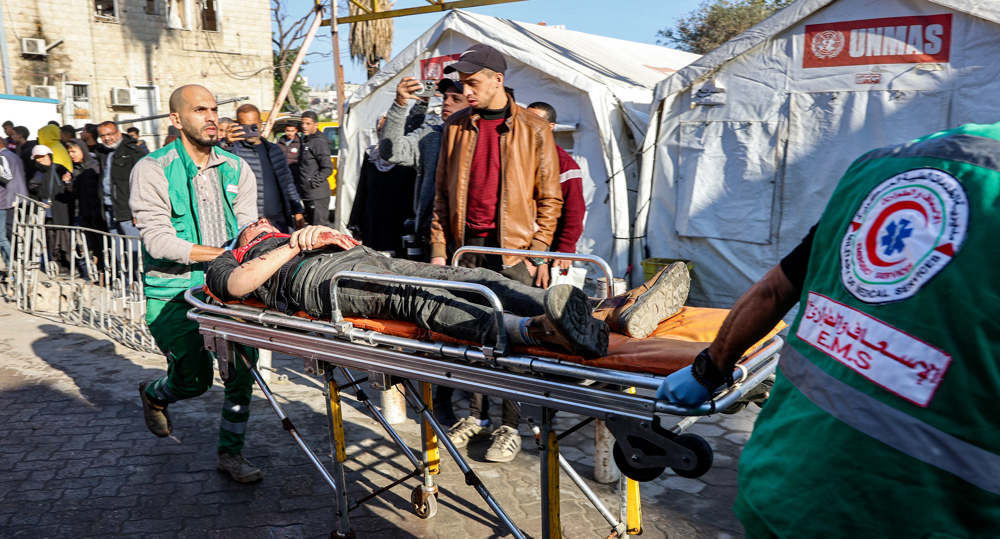Witnesses decry Israeli 'shoot-to-kill' policy against Palestinians
Witnesses say Israeli forces have adopted a “shoot-to-kill” policy during clashes with Palestinians, even in clear cases where they could be captured.
More than 200 Palestinians have been killed since last October, with Israel claiming that most of those killed were involved in attacks against settlers and regime forces.
Dozens died by a single shot to the head or chest, a clear indication of the shoot-to-kill policy.
Last month Israeli forces shot dead two Palestinians at the Qalandiya checkpoint , for allegedly trying to stab Israeli officers.
Maram Salih Abu Ismail, 24, was killed alongside her 16-year-old brother Ibrahim Taha by private guards after Maram, who was pregnant, allegedly threw a knife at a police officer.
Witnesses said Maram did not have a knife and that the two did not understand the warning by Israeli soldiers in Hebrew, after they entered a restricted area.
Rights advocates say the ruthless policy has resulted in “extrajudicial executions” of a number of Palestinians.
Palestinian taxi driver Mustafa Abu Ramouz said Israeli private guards have resorted to what the UN and international rights groups have termed a “shoot-to-kill” policy against Palestinians.
Abu Ramouz told the online news portal Middle East Eye that he has seen several Palestinians killed by Israeli forces at the checkpoint in the occupied West Bank.
“It’s happened several times in front of me, when people entered the wrong area and were asked to go back by the army,” Abu Ramouz said.
“All of the time people go back. But this time they [Maram and Ibrahim] were killed, they were not given the chance,” he said.
Located between al-Quds (Jerusalem) and the West Bank city of Ramallah, the Qalandiya checkpoint is reportedly run by private contractors.
Abu Ramouz said military police now check IDs and conduct security checks, while police operate the checkpoint, and private guards are stationed - generally behind concrete blocks - as force protection.

The 40-year-old Palestinian man said that Palestinians regard security contractors as another extension of the Israeli occupation.
“Most people don’t see a big difference between them... I mean this is the Israeli army, this is the Israeli police, this is a private Israeli security guard. But in the end you [a Palestinian] are an enemy to all of them, and they all treat you badly.”
“They have no laws for these guards in Israel, and they're allowed to do anything,” Abu Ramouz said.
The Association for Civil Rights in Israel (ACRI) has filed numerous appeals against the use of private security in occupied East al-Quds.
According to ACRI, the contractors carry out discriminatory practices against Palestinians without any legal system in place to hold them accountable.
Israeli rights group B'Tselem has slammed Israel’s excessive use of violence against Palestinians as well as the immunity granted to Israeli forces.
A new wave of uprising has erupted in the West Bank since last October after Palestinians accused Israelis of trying to change the status quo of the al-Aqsa Mosque by increasingly frequenting the religious compound.
The mosque is one of the most sacred in the world for Muslims.
VIDEO | Yemenis praise the military for its successful operations against Israel
VIDEO | Israel continues to bomb Gaza homes
VIDEO | An insider's view of the country: Meybod City in Yazd
‘All wars have rules. All of those rules have been broken’ by Israel
VIDEO | Report flags India’s violation of rights of Rohingya detainees
Turkey's foreign minister meets Syria's de facto leader in Damascus
VIDEO | US Syria plots
'Next to impossible' to rescue patients from Gaza's Kamal Adwan Hospital: Director














 This makes it easy to access the Press TV website
This makes it easy to access the Press TV website